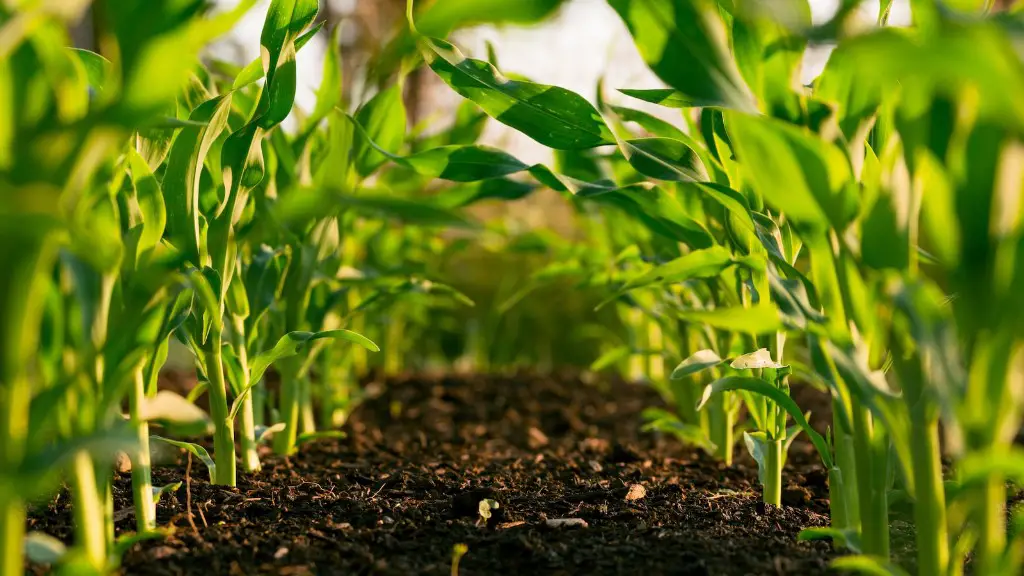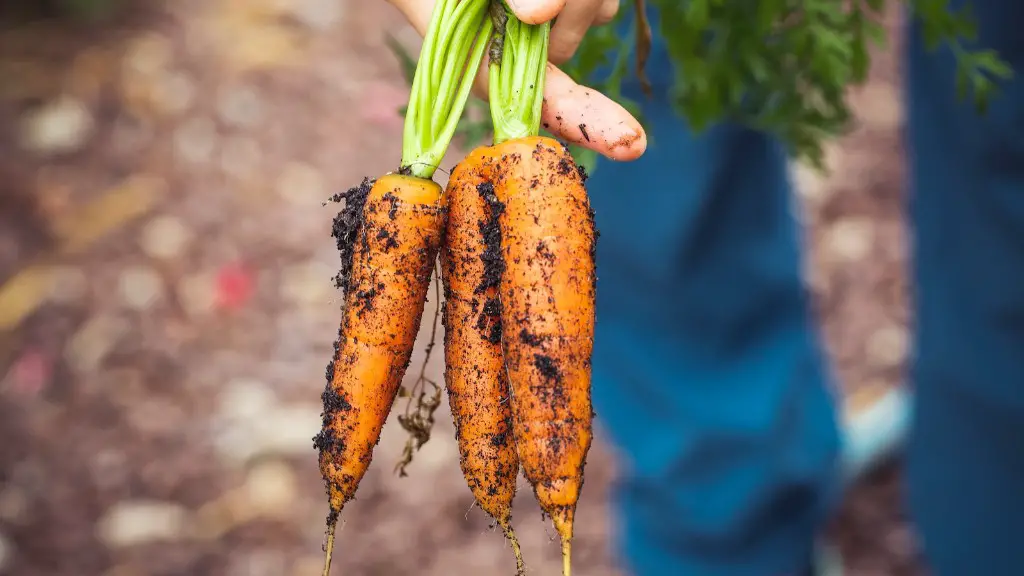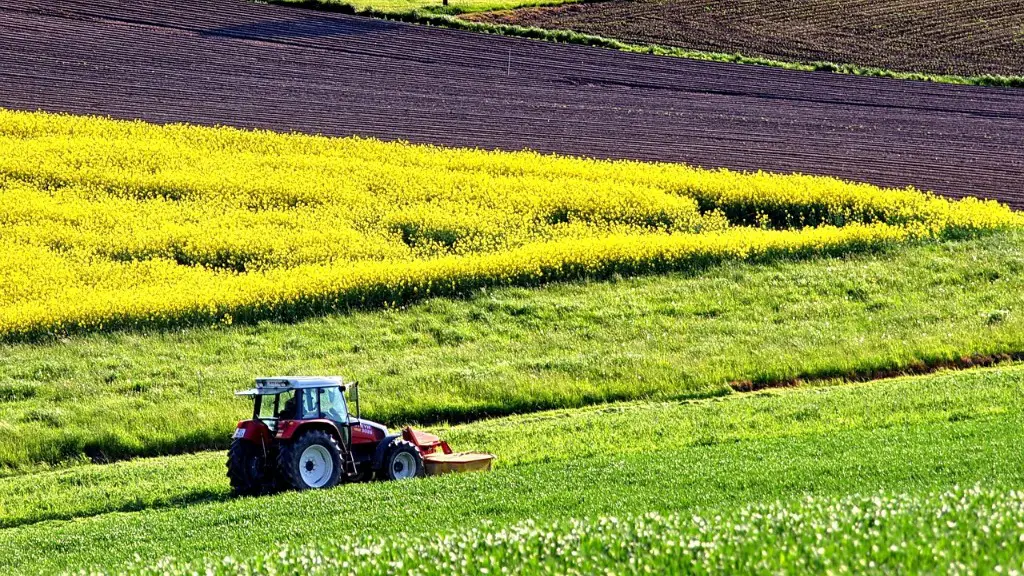Colonial agriculture is a form of agricultural practices primarily adopted by the colonial powers during their occupation of a region. During this period, much of the land was owned by the European settlers who would then use highly specialized techniques and methods to cultivate the land in order to maximize their production. This was done both to feed the population and to export goods to their home countries. Colonial agriculture had a major impact on the socio-economic and political development of many of the countries in the world.
Colonial agriculture was largely based on the idea of agriculture being a mainstream industry which could be used to produce food and cash crops such as cotton, tea and tobacco. The farmers used systems such as monocropping, which saw them focus on one crop from start to finish. This enabled Europe to get the most out of the land and gain further control over the region.
Farmers during this period also relied heavily on the use of chemicals and artificial fertilizers to maximize their yields. This led to a large-scale erosion of the soils, resulting in a loss of fertility and productivity. The use of pesticides resulted in the over exploitation of natural resources, leading to the destruction of local eco-systems. Additionally, there were other problems such as poor labor conditions, lack of employee rights and a general disregard for environmental concerns.
Colonial agriculture has had a lasting impact on the countries it has been used in. The introduction of certain practices such as monocropping, the use of chemicals, and the disregard for the environment resulted in the destruction of natural habitats, soil erosion and water pollution. This, in turn, had a significant effect on the living standards of indigenous people as they were left without access to natural resources.
The use of colonial agriculture has had a mixed impact on the modern world. On one hand, it has allowed for increased economic growth through increased access to food and cash crops, on the other hand, it has had a negative impact on developing nations, leaving them with a legacy of environmental and social devastation.
Impact of Colonial Agriculture on the Environment
Colonial agriculture has had a tremendous environmental impact, a direct result of the reckless use of chemical fertilizers, pesticides and other man-made inputs on the natural lands of developing countries. These unnatural practices have led to a decrease in the fertility and productivity of soils, damage to eco-systems, and the destruction of habitats for wildlife and indigenous people. Additionally, colonial agriculture has created water pollution, rise in soil acidity and other forms of land degradation.
The depletion of natural resources and biodiversity, air and water pollution, soil erosion and loss of productivity are just some of the consequences of colonial agriculture that countries have had to face in the past and continue to deal with today. At the same time, this form of agricultural production has been extremely successful and has helped to feed a growing world population.
In order to mitigate the adverse effects of colonial agriculture, countries have to make use of sustainable cultivation practices, such as crop rotation and the use of organic fertilizers. Furthermore, governments need to ensure that farmers and other workers are adequately compensated so that they can continue to afford to live off the land sustainably.
It is evident that colonial agriculture has had a deep impact on the environment and the lives of people living in the countries where it has been practiced. In order to prevent further destruction and to ensure the future of agriculture, countries need to adopt more sustainable practices.
Impact of Colonial Agriculture on Economy and Politics
The impact of colonial agriculture on the economy and politics of the countries in which it has been practiced, can be seen in three primary areas. Firstly, it has had a huge impact in terms of the economic and industrialization of many of the countries in the world, allowing them to become major areas of export and providing them with a much needed source of income. Additionally, it has resulted in an increase in population growth and has provided employment for many people.
Secondly, colonial agriculture has led to an increase in the international markets, allowing countries to become major exporters of agricultural products. This has had the effect of widening the gap between rich and poor countries. Thirdly, it has had a huge impact on politics, as the colonial powers were able to use their leverage to gain more power and influence in certain regions around the world.
In conclusion, colonial agriculture has had a major impact on the socio-economic and political development of many countries around the world. Its success in producing food and cash crops has enabled many countries to become producers in the global market, while its destruction of natural resources and the exploitation of labor have had a major impact on the environment and indigenous people.
Impact of Colonial Agriculture on Indigenous People
The impact of colonial agriculture on the indigenous people of the countries in which it was practiced, was enormous. Many of the indigenous people had their lands taken away, their cultures destroyed and their way of life changed drastically. This had a massive impact on their health, their livelihoods and their way of life.
Due to their lack of rights, indigenous people were denied access to natural resources and their land was taken away from them. This, combined with the introduction of monocropping, chemical pesticides and artificial fertilizers, led to a decrease in soil fertility and productivity, leading to drastic decreases in the health of the indigenous people.
Moreover, they were also subject to various forms of exploitation, as they were subjected to poor working conditions, denial of basic rights and a general disregard of their basic needs such as food and water. As a result, this had a huge impact on their physical and mental wellbeing.
In addition, the colonial powers further exploited indigenous people by forcing them to work on the plantations and pay taxes without any form of compensation or recognition. Lastly, they were subjected to various forms of discrimination, such as being denied the right to vote, being prevented from owning a business, and even being denied access to basic amenities such as healthcare.
It is clear that colonial agriculture had a devastating impact on the indigenous people of the countries in which it was practiced. They were subjected to constant exploitation and denied their basic rights, leading to a decrease in their physical and mental wellbeing.
Impact of Colonial Agriculture on Living Standards and Health
The impact of colonial agriculture on the living standards and health of the people in the countries where it was practiced, was significant. Poor labor conditions, exploitation and the use of chemicals and artificial fertilizers, as well as the loss of natural resources, led to a decrease in the living standards of many people.
The overuse of chemical fertilizers and pesticides also contributed to a decrease in soil fertility and productivity, as well as plant and animal biodiversity. This had a major impact on the health of the people living in the countries, as they were exposed to various forms of toxins that polluted the air, water and soil. Additionally, it caused a rise in the number of people suffering from various types of cancers and other health problems.
The use of colonial agriculture also resulted in an increase in the number of people affected by food scarcity, due to an overall decrease in the productivity of the land. This, in turn, led to a decrease in the living standards of many people, as they had to try and survive on limited resources.
In addition, various forms of exploitation such as forced labor and the denial of basic human rights, further contributed to a decrease in the health and living standards of the people in the countries where colonial agriculture was practiced.
Impact of Colonial Agriculture on Gender Equality and Female Empowerment
Colonial agriculture had an equally significant impact on the gender equality of the countries in which it was practiced. During this period, women were subject to various forms of exploitation and discrimination, as there were fewer rights for them than for men. This, in turn, limited their access to resources and education, making it difficult for them to advance socially.
Moreover, women were subjected to unfair working conditions, exploitation and a general disregard for their basic needs. As a result, there was a decrease in their overall health and wellbeing, leading to a decrease in their social and economic status.
Furthermore, the introduction of monocropping and the use of chemicals and artificial fertilizers, had a direct impact on women. This, in turn, further limited their access to natural resources, as well as to opportunities in the workplace and in society as a whole. Additionally, the introduction of these practices had a major impact on the environment, resulting in further depletion of resources and ecosystem destruction.
Overall, it is clear that colonial agriculture had a major impact on gender equality and female empowerment. Its reckless exploitation of resources, disregard for the environment and exploitation of labor, have all contributed to a decrease in living standards and to the subjugation of women in many of the countries where it was practiced.





